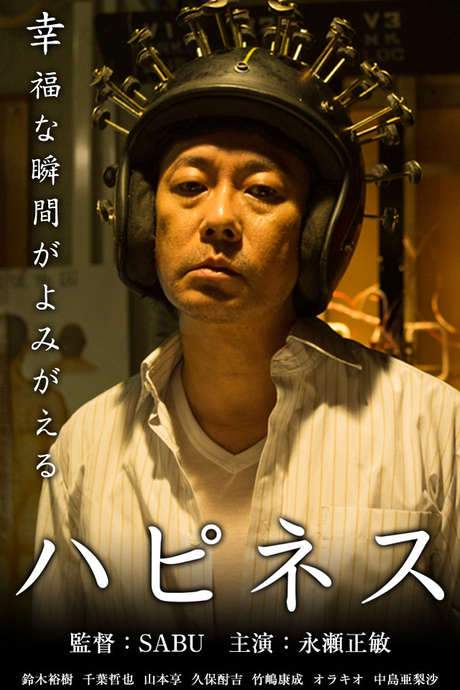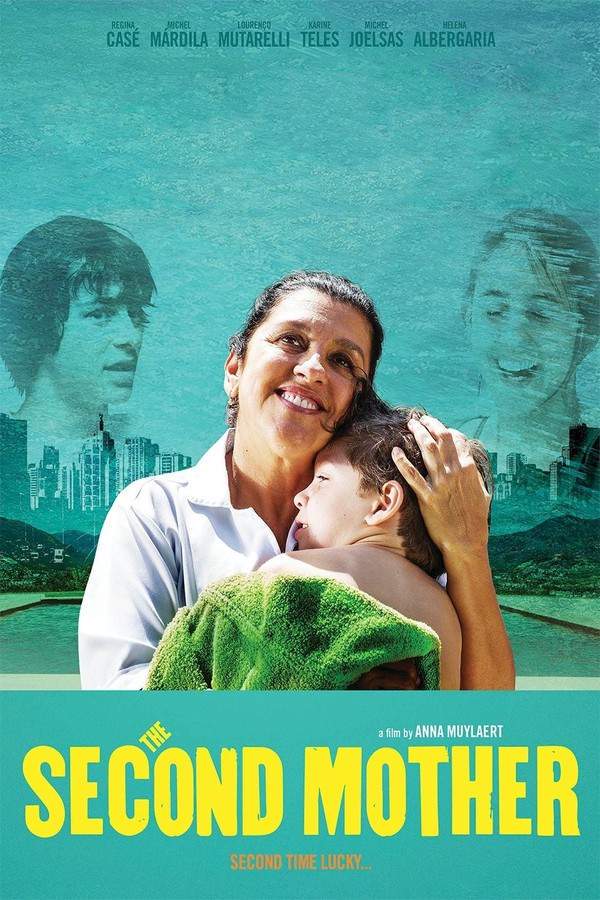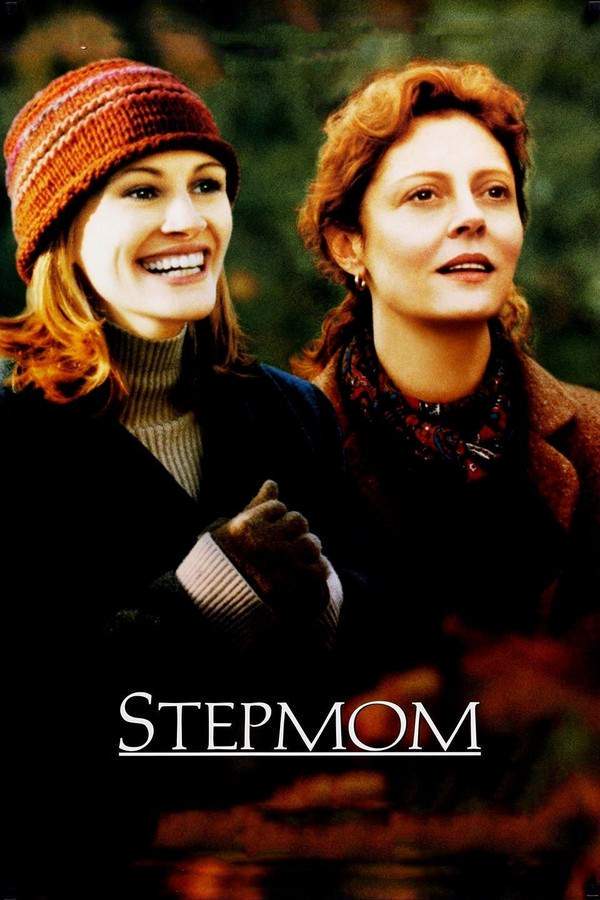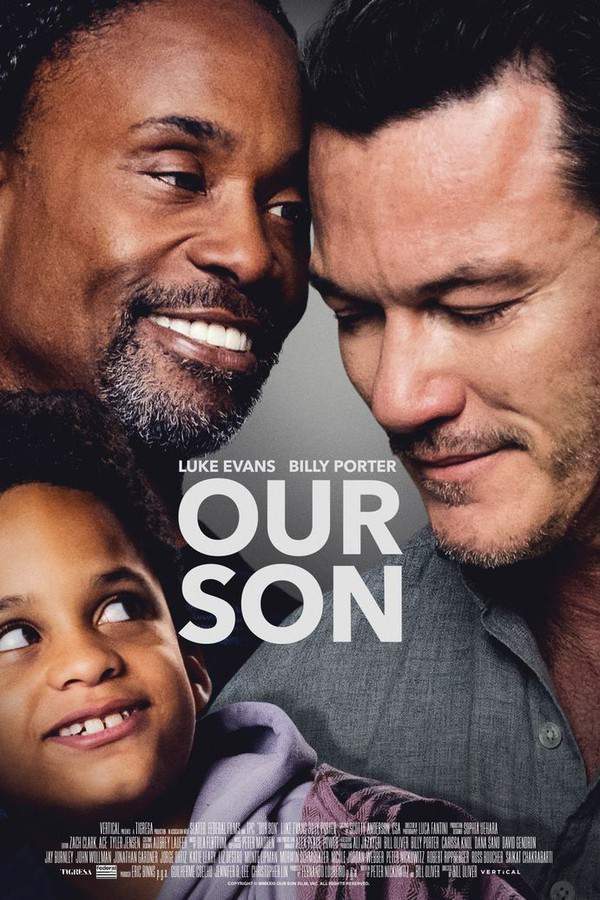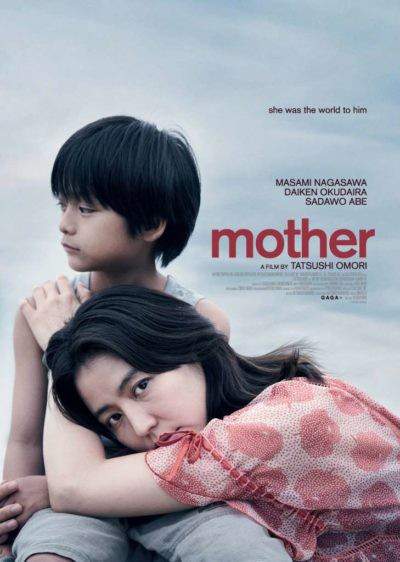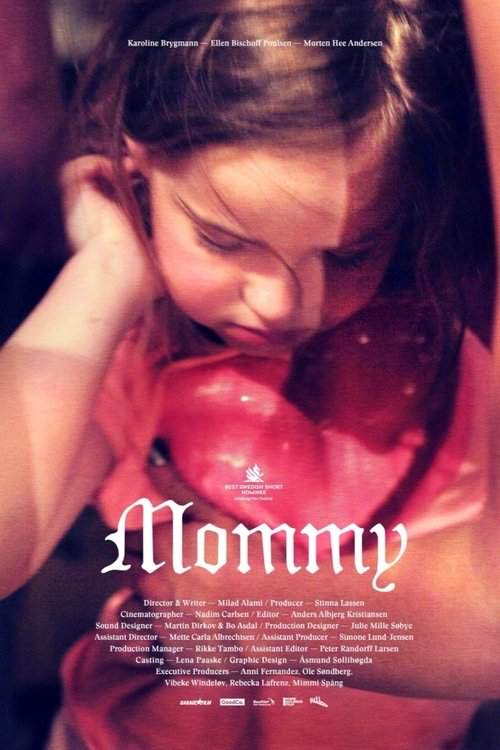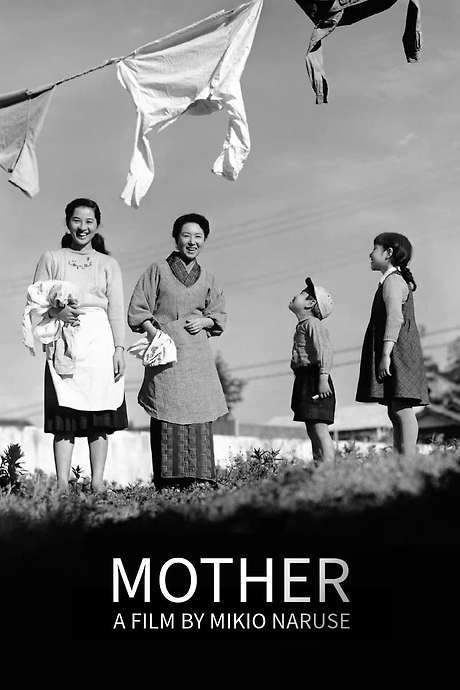
Montages of a Modern Motherhood
Year: 2024
Runtime: 111 mins
Language: Cantonese
Director: Oliver Siu Kuen Chan
Jing's daily routine begins with a tracking shot as she pumps breast milk and prepares for work at a bakery, leaving her baby with her mother-in-law. Her daughter Qing is a challenging infant, leading to frequent conflicts with her in-laws regarding childcare and housework. Jing's husband, a delivery driver, offers limited assistance with parenting, leaving her feeling as though her career aspirations have been undermined by motherhood. Director Oliver Siu Kuen Chan explores Jing’s emotional struggles, revealing the pressures and societal expectations placed upon women, ultimately forcing her to confront a pivotal decision.
Warning: spoilers below!
Haven’t seen Montages of a Modern Motherhood yet? This summary contains major spoilers. Bookmark the page, watch the movie, and come back for the full breakdown. If you're ready, scroll on and relive the story!
Montages of a Modern Motherhood (2024) – Full Plot Summary & Ending Explained
Read the complete plot breakdown of Montages of a Modern Motherhood (2024), including all key story events, major twists, and the ending explained in detail. Discover what really happened—and what it all means.
After six long years of waiting for a child, Jing finally holds her infant daughter, Ching, in her arms, shared with the steady support of her husband, Wai. The adoration is real, but so are the mounting pressures of balancing work, motherhood, and the expectations that often come with both. When Jing returns from maternity leave to her job as a pastry chef at a bakery, the routine she once trusted is now tempered by new responsibilities and a sense of vulnerability she’s only just beginning to understand.
Back home, Jing’s mother-in-law steps in to help during the day, a gesture meant to ease the transition but which quickly reveals tensions that simmer beneath the surface. One day, Jing arrives early from work and discovers that the grandmother has bathed Ching with a charm paper water, claiming it will make the baby healthier. The moment feels almost banal in its ritual, yet it bites deep because it signals a larger pattern: an insistence that Jing’s parenting instincts aren’t enough, and that “better” methods must come from outside inputs. Worse still, Jing uncovers a troubling absence of care in the most intimate measure of a mother’s work—her breast milk has been discarded in favor of powdered milk, with the grandmother justifying it by saying Jing’s milk isn’t good enough and that Ching is lighter than other babies her age. The discovery forks Jing’s trust and patience into a sharp, jagged doubt, and the confrontation that follows leaves both women entrenched in a stubborn, hurtful stand-off.
Ching’s nights become a chorus of cries, a small, persistent pressure that demands Jing’s attention while Wai, by contrast, seems removed and distant. He speaks of sleep deprivation and tells stories of nearly having an accident while working as a truck driver during the day, which reads as a defense for his own fatigue rather than a plea for shared responsibility. The imbalance gnaws at Jing, who begins to suffer from insomnia and starts slipping at work, making mistakes that attract her boss’s disapproval. The atmosphere at the bakery grows tenser, and Jing finds herself navigating a delicate tension: she wants to prove she can carry both motherhood and a career forward, yet the external pressures and a lack of real support push her toward breaking points she had not anticipated.
To ease her burden, Jing looks for daytime help and eventually meets Fanny, a retired woman whose family has already migrated overseas. Fanny’s presence offers a quiet relief: a capable, steady routine that allows Jing to focus more on her responsibilities while continuing to pursue her own ambitions. But the arrangements remain precarious. Jing battles with the physical side of motherhood—pumping milk proves difficult, and a visit to a doctor reveals mastitis that requires medical treatment. While Jing fights through the discomfort, Wai steps in with patience and promises to support both her and the baby, yet the promise feels hollow at moments when Jing’s independence and professional identity cry out for recognition.
Jing wants to work and sustain her independence, fueled by the belief that women deserve financial means and personal autonomy. This conviction leads her to apply to more bakeries, seeking a place where motherhood is not a border but a balance she can manage. Yet rejection comes from many corners, a reflection of the era’s lingering attitudes toward new mothers in the workforce. The household frictions intensify as Fanny announces she will migrate to Canada at the end of the month, signaling another impending shift in Jing’s support network and forcing Jing to confront the practical reality that she must find another nanny at short notice.
Formula prices climb again, a small but persistent reminder of the fragility of Jing’s budget and the family’s plans. She returns to Wai, asking for more money for the household, and his response lands with a mixed message: he agrees to the extra support but suggests Jing consider staying home full-time until Ching grows older. The suggestion lands like a chill on Jing’s hopes for a thriving, independent career. The clash between them—his push for economic security and her push for personal and professional fulfillment—highlights a broader question about who shoulders the work, and when, in a modern family.
A party at their home, hosted by Wai to introduce friends to their newborn, becomes a revealing snapshot of their dynamics. Ching soils her diaper, a perfectly ordinary event in the life of a small child, and Wai remains with his friends, leaving Jing to tend to the infant’s needs on her own, a moment that underscores the gulf between the couple’s expectations and realities. The moment also reveals that Wai is more focused on social appearances and potential new opportunities, as he discusses with a friend who has started a logistics company, hinting at hopes for a higher salary and a better future for the family.
On Fanny’s last day, Jing returns to her childhood home to talk with her own mother, but she is repeatedly interrupted by her brother’s children. The delay stretches Jing thin, and she wanders the streets, tempted by thoughts of escaping motherhood itself. Yet a nametag bearing her and Ching’s names triggers a wave of remorse, and she rushes back to Fanny’s place, where she apologizes to Ching and decides to bring her daughter home. The act marks a turning point in Jing’s inner life, a moment of recommitment to the life she’s chosen, even as the weight of the struggle remains.
To offer a moment of respite, Wai takes Jing to the beach, telling her about his transition to a new company and sharing his plan to have another child while promising to help her open her dream bakery once their children are older. The conversation is not a resolution but a pause—a possibility outlined rather than a certainty—yet it carries a strand of hope that Jing can still craft a future that respects both her family and her ambitions. The film closes with a quiet, intimate image: Jing and Ching by a riverside, a scene that crystallizes a dream she has held onto since the beginning—her daughter growing up, thriving, and perhaps someday graduating from university. It is a vision of health, happiness, and the slow, patient work of building a life that reconciles love, work, and independence.
In the end, the story remains intimate and human: a mother’s fierce devotion tested by competing demands, a partner’s evolving responsibilities, and the tremor of change as a family navigates the delicate balance between care and autonomy. It is a portrait of modern motherhood that resists easy answers, choosing instead to linger in the real questions people ask when they try to build a life that honors both a child’s future and a parent’s aspirations.
Last Updated: October 01, 2025 at 10:23
Explore Movie Threads
Discover curated groups of movies connected by mood, themes, and story style. Browse collections built around emotion, atmosphere, and narrative focus to easily find films that match what you feel like watching right now.
Movies about domestic strain like Montages of a Modern Motherhood
Stories where the pressure of family life builds in everyday moments.If you appreciated the nuanced portrayal of family conflict in Montages of a Modern Motherhood, explore these movies that capture similar quiet tensions. This list features other slow-burn dramas where the pressures of home life, marital strain, and societal roles create a relatable and introspective viewing experience.
Narrative Summary
Stories in this thread typically follow a protagonist navigating the subtle but relentless pressures of their home environment. The conflict arises from mundane disagreements, unmet needs, and the gap between personal aspirations and domestic responsibilities, often leading to a moment of quiet confrontation or resigned acceptance.
Why These Movies?
Movies are grouped here for their shared focus on the emotional intensity found within ordinary family settings. They share a similar tone of quiet anxiety, a slow, observational pacing that highlights the weight of small moments, and a thematic core centered on the struggle for personal identity within the constraints of family life.
Movies about motherhood struggles like Montages of a Modern Motherhood
Intimate portraits of mothers navigating societal pressure and personal sacrifice.For viewers seeking films similar to Montages of a Modern Motherhood, this collection highlights powerful stories about the postpartum experience and the systemic pressures on mothers. These dramas delve into work-life balance, societal expectations, and the fight for personal autonomy with emotional honesty.
Narrative Summary
The narrative pattern follows a mother as she grapples with the overwhelming demands of new parenthood amidst a lack of support. The journey involves confronting external pressures from family or society, an internal struggle with identity loss, and a pivotal decision point about her path forward, often ending on a realistically complex note.
Why These Movies?
These films are united by their central thematic focus on the realities of motherhood. They share a specific mood blend of deep love, frustration, and isolation, a straightforward narrative complexity that makes the emotional themes direct, and a consistently bittersweet tone that reflects the dual nature of the experience.
Unlock the Full Story of Montages of a Modern Motherhood
Don't stop at just watching — explore Montages of a Modern Motherhood in full detail. From the complete plot summary and scene-by-scene timeline to character breakdowns, thematic analysis, and a deep dive into the ending — every page helps you truly understand what Montages of a Modern Motherhood is all about. Plus, discover what's next after the movie.
Montages of a Modern Motherhood Timeline
Track the full timeline of Montages of a Modern Motherhood with every major event arranged chronologically. Perfect for decoding non-linear storytelling, flashbacks, or parallel narratives with a clear scene-by-scene breakdown.

Characters, Settings & Themes in Montages of a Modern Motherhood
Discover the characters, locations, and core themes that shape Montages of a Modern Motherhood. Get insights into symbolic elements, setting significance, and deeper narrative meaning — ideal for thematic analysis and movie breakdowns.

Montages of a Modern Motherhood Spoiler-Free Summary
Get a quick, spoiler-free overview of Montages of a Modern Motherhood that covers the main plot points and key details without revealing any major twists or spoilers. Perfect for those who want to know what to expect before diving in.

More About Montages of a Modern Motherhood
Visit What's After the Movie to explore more about Montages of a Modern Motherhood: box office results, cast and crew info, production details, post-credit scenes, and external links — all in one place for movie fans and researchers.

Similar Movies to Montages of a Modern Motherhood
Discover movies like Montages of a Modern Motherhood that share similar genres, themes, and storytelling elements. Whether you’re drawn to the atmosphere, character arcs, or plot structure, these curated recommendations will help you explore more films you’ll love.
Explore More About Movie Montages of a Modern Motherhood
Montages of a Modern Motherhood (2024) Scene-by-Scene Movie Timeline
Montages of a Modern Motherhood (2024) Movie Characters, Themes & Settings
Montages of a Modern Motherhood (2024) Spoiler-Free Summary & Key Flow
Movies Like Montages of a Modern Motherhood – Similar Titles You’ll Enjoy
Mother (2020) Movie Recap & Themes
Mother and Child (2010) Full Summary & Key Details
Mommy (2015) Full Summary & Key Details
Motherhood (2009) Plot Summary & Ending Explained
Mothers and Daughters (2016) Film Overview & Timeline
Mother (1997) Film Overview & Timeline
Queen of the Morning Calm (2019) Full Movie Breakdown
The Mothering Heart (1913) Story Summary & Characters
Mother Vs Mother (1988) Detailed Story Recap
Mama’s Affair (2022) Ending Explained & Film Insights
Mother Vs Mother (1988) Detailed Story Recap
From Mother to Daughter (1968) Detailed Story Recap
The Way We Are (2008) Ending Explained & Film Insights
Mother, Father, Child (1978) Spoiler-Packed Plot Recap
Mother (1952) Movie Recap & Themes






